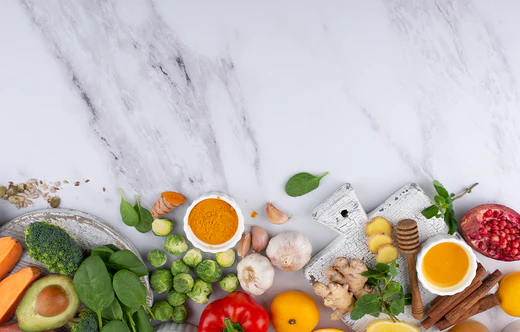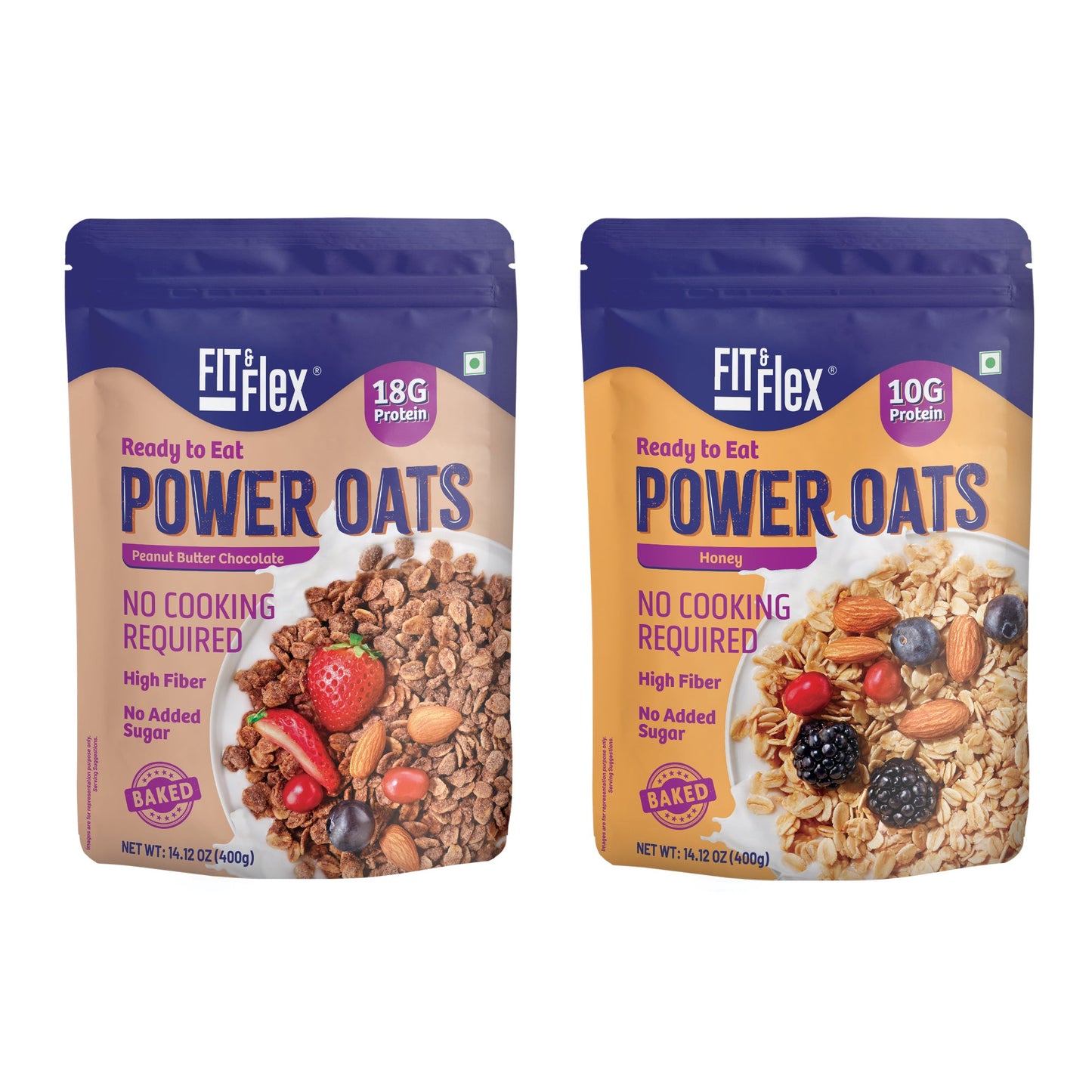30 Superfoods For Boosting Your Immune System

Immunity-Boosting Superfoods
When our lifestyle factors are in balance, our immune system works most efficiently, with the foundation of a healthy diet being the most important. Diet has a significant influence on disease risk in general. Specific foods have shown to do everything from keeping your gut microbiome diverse to prevent upper respiratory infections, which is especially important during cold and flu season.
While no foods can directly prevent the common cold or flu, a diet rich in vitamins and minerals can help your body better prepare to fight off whatever comes their way. It is especially essential as you age. Because our immune response declines as we age, it is critical to view each meal as an opportunity to nourish your body while also supporting a healthy immune system.
30 Superfoods For Your Immune System
Your body gets constantly exposed to bacteria, germs, and viruses that try to infiltrate and attack it. Your complex immune system functions similarly to a personal military system, armed and ready to defend you against these foreign invaders who cause harm. Even if an infection infiltrates your body, it is usually only a matter of time before your immune system can fight it off. It is critical to focus on the right fuel to support your troops and get your immune system serving you with strength. Here are 30 superfoods that will help boost immunity:
1. Citrus Fruits
Citrus fruits are high in vitamin C, which aids in the formation of white blood cells. Because vitamin C is water-soluble, it cannot get stored by the body. As a result, it is critical to consume vitamin C-rich foods regularly. One cup of orange juice is equivalent to three oranges! Because too much sugar can lower immunity, it’s best to eat the whole fruit whenever possible. To boost your vitamin C intake, add a squeeze of lemon or lime juice to your water or tea.
2. Berries
These lovely berries are high in vitamin C, flavonoids, and antioxidants. Flavonoids protect plants. When humans consume them, they aid in cell protection. They are also anti-inflammatory. To add some natural sweetness to your morning cereal or yogurt, toss them in. If you have extras, freeze them and use them in smoothies.
3. Cherries
Cherries are high in antioxidants and can help protect against viruses. They contain anthocyanins and cyanidin, both of which help to reduce inflammation. Cherries are also high in potassium, which helps with blood pressure and hydration.
4. Green & Black Tea
Flavonoids, a type of antioxidant, are plentiful in green and black tea. Green tea, in particular, contains epigallocatechin, an antioxidant that improves immune function. L-theanine is also abundant in green tea. It is an amino acid (protein building block), which can help your T-cells fight germs more effectively.
5. Ginger
Ginger is a great anti-inflammatory that can aid in the prevention of certain chronic diseases. Certain studies also suggest that it has antibacterial properties, such as the ability to combat specific bacteria. This sweet-tasting root makes a delicious fresh tea. You can peel and slice it, then place it in a bowl of hot water. It’s also a great addition to simple dishes like stir-fry.
6. Garlic
You can find allicin in whole garlic cloves. It is the compound responsible for garlic’s pungent flavor. It also converts to Sulphur compounds, which can enhance the function of white blood cells. Allicin also improves your body’s ability to fight viruses. It is preferable to use whole garlic instead of powdered garlic. Crush, chew or slice the garlic cloves to activate the allicin.
7. Turmeric
Turmeric is responsible for the bright yellow color of curries. It is a medicinal root that has become part of society for nearly 4000 years. Curcumin is the active compound, and it is a powerful antioxidant. Turmeric has a low curcumin content that is difficult to absorb. Consuming it with black pepper and healthy fat, on the other hand, can help increase bioavailability, or how well it gets digested and absorbed by your body.
8. Red Bell Pepper
Red bell peppers have the highest concentration of vitamin C than any other fruit or vegetable. They are also a good source of beta carotene due to their bright red color. Red bell peppers contain nearly ten times the amount of beta-carotene and vitamin A as other colors.
9. Mushrooms
For centuries, medicinal mushrooms have been a staple of Eastern medicine. They’ve recently gained traction in Western culture. Although they are not a panacea, research indicates that they can help with heart health, cancer, and age-related disease. They are also a good source of vitamin D, which is necessary for a healthy immune system, metabolism, and mental health.
10. Cruciferous Vegetables (Broccoli, Cabbage, Brussel Sprouts)
These potent vegetables are all members of the cruciferous family, which is known for its cancer-fighting properties. Broccoli, Brussels sprouts, cauliflower, cabbage, Bok Choy, and kale are among them. These healthful vegetables are high in immune-boosting vitamins like A, C, and E. Furthermore, they may prevent DNA damage and thus protect against certain types of cancer.
11. Leafy Greens
Leafy green vegetables are high in nutrients that have medicinal properties, such as flavonoids and carotenoids. They also contain immense amounts of vitamin C and E. Eat them with good fat, such as oil, to boost nutrient absorption.
12. Sweet Potatoes
Sweet potatoes are high in beta carotene, which contributes to their vibrant orange color. Beta carotene is also a powerful antioxidant that aids in the production of vitamin A.
13. Tomatoes
Tomatoes are high in lycopene, which is a type of carotene. Lycopene improves immune function and prevents certain types of cancer. Tomatoes are also high in vitamin C, which is a powerful immune booster.
14. Yogurt
Probiotics are abundant in yogurt and other fermented dairy products such as kefir. These are beneficial bacteria that keep your gut health and boost your immune system. They also help with health issues ranging from heart disease to arthritis to cancer. Yogurt also contains high amounts of vitamin D.
15. Nuts (Almonds, Walnuts, Cashews)
Nuts are high in vitamin E, which is a potent antioxidant. It also boosts the production of white blood cells. Nuts are also high in heart-healthy fats, which can help increase good cholesterol (HDL) while decreasing bad cholesterol (LDL).
16. Granola
Granola contains healthy ingredients that aid in the maintenance of the digestive tract. In comparison to refined breakfast cereals, granola’s fiber helps reduce inflammation in the gut by increasing levels of healthy gut bacteria. Antioxidant-rich ingredients include coconut, chia seeds, and Brazil nuts. As a result, adding it to granola tends to increase the antioxidant content. Gallic acid, quercetin, selenium, and vitamin E are all ingredients that help to reduce inflammation.
17. Fatty Fish (Tuna, Salmon)
Fish has long been touted for its omega-3 fatty acids linked to improved cardiovascular health in some studies. However, fatty fish, such as salmon, are high in vitamin D. Furthermore, research suggests that vitamin D supplementation finds a link to a lower rate of upper respiratory infections (and that, conversely, low vitamin D levels are linked to increased incidence of upper respiratory infections.)
18. Shellfish
Oysters, clams, mussels, lobster, and crab are examples of shellfish. These are high in zinc, protein, and healthy fats, all of which help to boost the immune system. They are also high in selenium and B vitamins, which aid in brain health and immunity.
19. Poultry (Chicken, Turkey)
Poultry, such as chicken and turkey, is high in B vitamins, which aid in the maintenance of a healthy metabolism, energy systems, and immunity. These are also high in protein, which boosts immunity and aids in muscle building.
20. Pumpkin Seeds, Chia Seeds, Sunflower Seeds
Seeds are high in protein, omega-3 fatty acids, and minerals like phosphorus, magnesium, and B vitamins. They also contain vitamin E, a potent antioxidant. Flax and chia seeds are high in omega 3, which is good for your heart. Zinc is abundant in pumpkin seeds and sunflower seeds. Combine seeds with your morning cereal, yogurt, or as a salad topping.
21. Beans
Beans are high in B vitamins, potassium, magnesium, and fiber, among other nutrients. Fiber is a source of nutrition for good gut bacteria. So eating fibrous foods like beans contributes to the growth of a community of healthy bacteria in your gut. A healthy abdomen equates to a healthy body and immune system.
22. Blueberries
Blueberries appear to be on every list of superfoods because of a flavonoid called anthocyanin, which has multiple immune-boosting properties. According to studies, blueberries nearly double the amount of immune natural killer cells in the bloodstream. Furthermore, with their antiviral properties, the flavonoids found in blueberries may help reduce the incidence of upper respiratory tract infections, according to additional research. Berries, in general, are high in antioxidants, which can aid in the fight against free radicals, which contribute to aging. Berries with a darker color, such as blueberries or blackberries, will likely have higher antioxidants.
23. Kiwi
You probably know that oranges are high in vitamin C, but some non-citrus fruits can also provide a significant amount. One medium kiwi contains 71% of your daily recommended intake of the vital nutrient. It helps to ward off various pathogens by increasing the production of white blood cells, which helps to prevent infection and disease. You will also find Vitamin E, folate, carotenoids, and polyphenols in kiwifruit.
24. Papaya
Another fruit high in vitamin C is papaya. A single medium fruit contains twice the daily recommended amount of vitamin C. Papayas also contain papain, a digestive enzyme with anti-inflammatory properties. Papayas are high in potassium, magnesium, and folate, all of which are good for your overall health.
25. Mustard Seeds
With a high content of magnesium, mustard seeds are a perfect addition to the immunity-boosting superfoods. The magnesium-rich mustard seeds help promote new cell growth, nourish your skin, increase red blood cell production, and boost your immunity.
26. Cranberries
Cranberries have anti-allergic and anti-viral properties that make them a superfood. Apart from this, cranberries are a potent source of immunity-boosting antioxidants like flavonoids and vitamin C. They help in either keeping your immunity intact or giving it a boost when necessary.
27. Avocados
Avocados are a popular superfood due to their versatility. You can use them in several dishes to add texture, flavor, and various health benefits to any meal. This fruit is high in folate, which aids in the proper growth and development of children. They also contain potent antioxidants, which help in the maintenance of a healthy immune system.
28. Gooseberry
Gooseberry has become a staple in Indian households for a long time. It is also well known for treating common ailments such as colds, sore throats, and digestive problems. Aside from being high in antioxidants, gooseberry is also high in micronutrients that boost immunity. Gooseberry detoxifies the body and improves your heart, eyesight, hair, and diabetic conditions. Gooseberry is a good option for weight watchers because of its high fiber content, which can help with weight loss.
29. Watermelon
A refreshingly tasty way to get healthier, ripe watermelon is high in glutathione – antioxidant strengthening the immune system and helps it fight infections (especially near the ready part of the rind).
30. Raw Honey
Honey has antibacterial properties and kills germs in the body that can cause illness. In the morning, a glass of warm water with a teaspoon of honey works wonders for your skin and gut health. It is high in calcium, iron, and magnesium, and it also has medicinal properties.
Related Blog: Granola Benefits: 18 Health Benefits of Granola
Summary
To boost your immunity, avoid or limit things that deplete it – alcohol, sugar, and processed foods. Increase your nutrients that support the immune system (vitamin C, vitamin D, vitamin A, B vitamins, vitamin E, carotenes, selenium, zinc, protein, cysteine, arginine, magnesium, omega-3 fatty acids).
A healthy body requires a robust immune system. We know that you are aware that healthy eating is one of the ways to ensure that your body remains balanced from the inside and achieves the optimum capacity for smooth functioning. Food high in powerful vitamins, minerals, and antioxidants effectively boosts the immune system and forms a protective shield against infection.
Fit & Flex Granola, with fiber-rich nuts and seeds, berries, fruits, and nourishing oats, becomes one of the healthiest foods to consume and tasty too. It keeps you energized all day long and becomes one of your most potent breakfast or snack options. Slow-baked and crunch, Fit & Flex Granola is the optimum choice and refreshing for your taste buds too. If you want to shop for Fit & Flex Granola, you can do it right here shop now.




